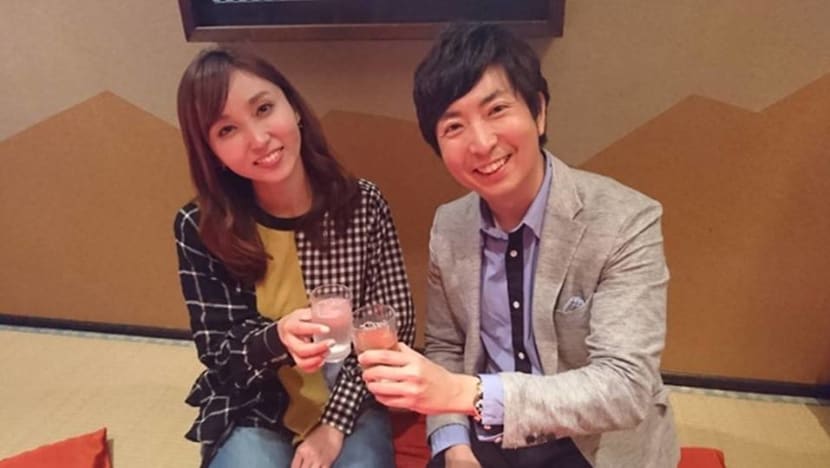Road Trip on Abukuma Express (Part 2)
We continue our two-day journey of enquiry and discovery along the Abukuma Express Line, which runs from Fukushima Prefecture to Miyagi Prefecture. On the first day, we spend the night at Kunimi Atsukashi-no-sato. It is the first roadside station in Fukushima Prefecture which offers accommodation.

We continue our two-day journey of enquiry and discovery along the Abukuma Express Line, which runs from Fukushima Prefecture to Miyagi Prefecture. On the first day, we spend the night at Kunimi Atsukashi-no-sato. It is the first roadside station in Fukushima Prefecture which offers accommodation.
We ask the manager if the roadside station has a restaurant and find out it closed earlier at 5pm. He recommends a restaurant along the national road. It is a five-minute walk from the roadside station and is incidentally also called Abukuma. It is known for its delicious curry and rice. Unfortunately, when we reach the place, it is already full. So we return to Kunimi Atsukashi-no-sato to ask if there is another place where we could have dinner. One of the staff mentions Okarou, a Chinese restaurant. It is quite far away, so the roadside station’s manager drives us there. We order the restaurant’s popular mapo tofu and shrimp with chilli sauce.
The next day, breakfast is served at the Momotan Cafe inside the roadside station. We have the local Kunimi rice with miso soup, local vegetables and homemade bread. After breakfast, we visit the stores inside the facility. They sell reasonably priced local vegetables, Kunimi rice and mountain vegetables such as bracken shoots. The manager once again gives us a ride, this time to Yanagawa Station. We hop on the 10.10am train and head towards Marumori Station. A passenger tells us about a quaint Japanese-style eatery near Abukuma Station, so we decide to alight there first.
We arrive at 10.30am and have until 11.35am to roam around. We manage to find the restaurant Marumori Sangyo Denshoukan but it is unfortunately closed. So we return to the station and travel towards Marumori again. We reach at 11.45am and the next train is at 12.55pm. We drop by a shop nearby to ask about tourist spots and are told about a bridge which offers splendid views of the Abukuma River. We also find out that passengers who travel on the Abukuma Express can rent bicycles at Marumori Station for free.
After cycling for 10 minutes, we reach the bridge and enjoy the view of the river and the beautiful surroundings. One can also take a boat ride down the Abukuma River, which spans 239km. We cycle back to Marumori Station and ask a lady there to recommend a good eatery. She tells us there is a ramen shop near Kakuda Station. We take the train and reach Kakuda at 1.05pm.
We ask a taxi driver near the station for directions to the ramen shop, Kouka Hanten. He informs us the restaurant is closed on this particular day. So we rent some bicycles again and start looking for other eating places. A resident we come across mentions the Goke Meat Shop and its popular croquettes. It also sells about 60 types of deli items. We go to the store and buy some fried fish paste croquettes and a fried cheese sandwich.
We next visit a flower shop to enquire about other tourist spots. The owner suggests the Sennan Schinken Factory, a local beer brewery which opened in 1997. It makes its Senan Craft Beer using a German method. The brewery also produces a Czech-style light beer and Sasanishiki, a thick bitter beer.
We catch the train departing at 3.25pm and go to Tsukinoki Station, the final station on the Abukuma Express Line. We stroll along the shopping street and speak to a woman who is delivering lunchboxes. She recommends we check out Amago-no-yuzu, where there are fields of citron. She offers to drive us halfway as it is an hour away by foot. We walk the rest of the way but are unable to find the place. A car dealer we meet is kind enough to drop us there and it is located on a mountain top. He tells us the area also has a huge gingko tree which is a few hundred years old.
We speak to Mr Kato, a farmer in charge of managing the well-known gingko tree, which is 700 years old. It is one of two gingko trees in Japan which are national natural monuments. It was designated as a national natural treasure in 1968.
Tips:
1) Abukuma Express passengers can rent bicycles at certain stations along the railway line for free
2) Take a boat ride down the Abukuma River to fully experience the beautiful surroundings












